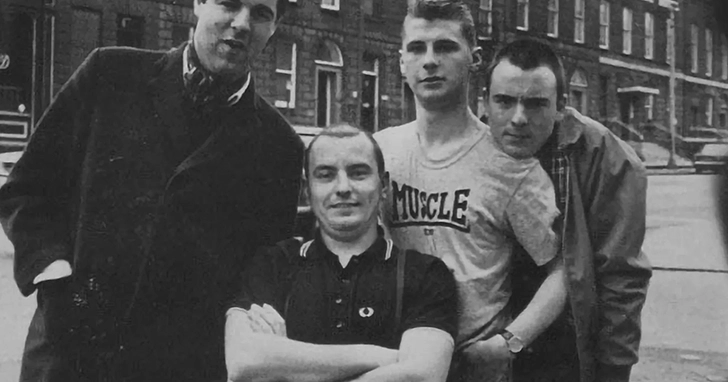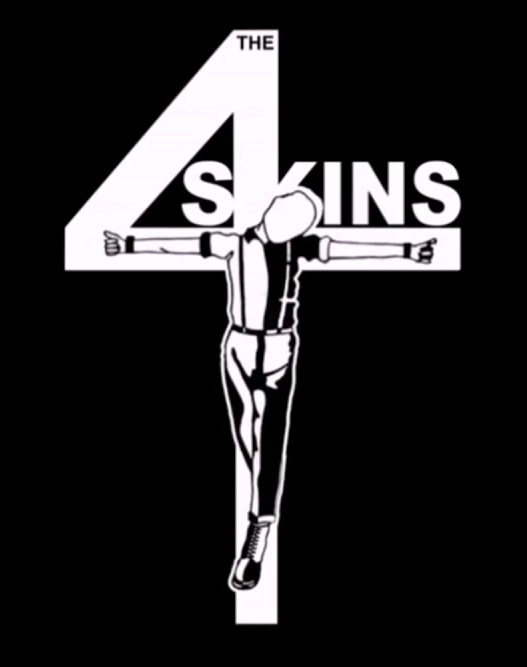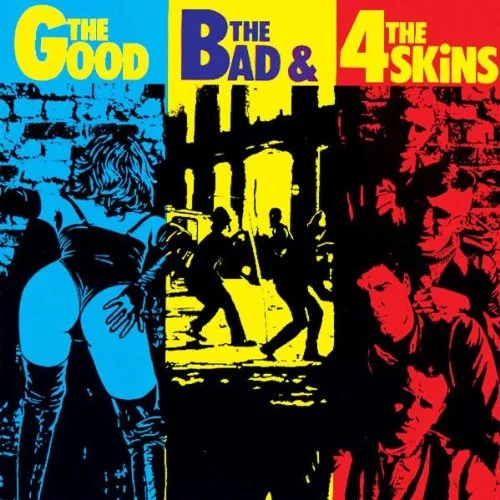The 4 Skins were one of the most well-known bands to emerge from the British Oi! movement. Formed in 1979 in East London, the group came together at a time when Punk was evolving and giving birth to a new style of music rooted in working-class identity. The 4 Skins represented a mix of Punk and Skinhead cultures, and their music reflected the struggles and experiences of the everyday lives of their fans.
Formation and Early Days
The band was initially formed by bassist Steve “H” Harmer and guitarist Hoxton Tom McCourt, alongside lead vocalist Gary Hodges. Over time, they went through several lineup changes, but this didn’t stop them from making an impact on the Oi! scene.

Their early gigs were energetic, often intense, and drew crowds from the skinhead subculture. The band quickly built a reputation for addressing themes that resonated with their audience, such as unemployment, social inequality, and the tensions of working-class life in late 1970s Britain.
The Oi! Movement
The Oi! genre, spearheaded by bands like the 4 Skins, Cockney Rejects, and Sham 69, was seen as a continuation of Punk but with a sharper focus on working-class issues. Unlike mainstream Punk, which was often associated with art school and experimental sounds, Oi! was raw, straightforward, and unpolished. The 4 Skins played a key role in defining this sound, blending aggressive guitar riffs with powerful, chant-like vocals that inspired unity among their fans.

Music and Legacy
The 4 Skins released their first single, One Law for Them, in 1981. The song became an anthem for the Skinhead movement, addressing themes of inequality and double standards. It remains one of their most iconic tracks to this day. Another standout song is Yesterdays Heroes, which reflects on fleeting fame and the struggles of staying true to oneself.
Their track The Way We Feel captures the raw emotions of frustration and anger, often felt by the working class during the turbulent times of the 1980s. These songs not only defined the band but also helped solidify Oi! as a genre that spoke directly to its audience.

The band’s debut album, The Good, The Bad, and The 4 Skins, was released in 1982 and remains a cornerstone of Oi! music. It showcased their no-nonsense approach to songwriting and covered a wide range of topics, from street violence to unity among working-class youth. Despite facing criticism and controversies, The 4 Skins stayed true to their roots, maintaining a loyal fan base.
Controversies and ‘The Peel Sessions’
The 4 Skins’ association with the Skinhead subculture occasionally brought them unwanted attention. While the band’s music was not inherently political, some fans and outsiders misinterpreted their message. This led to accusations of extremism, which the band always denied. Despite these challenges, The 4 Skins continued to play music that resonated with their core audience.
In 1981, The 4-Skins recorded a Peel session featuring tracks like Evil, but it was never aired. This was likely due to the infamous Hambrough Tavern riot on 4 July, where a gig with The Last Resort and The Business ended in violence. The chaos, which saw 110 people hospitalised and the venue petrol-bombed, was reported by the BBC in August 1981. The incident brought negative attention to the Oi! scene, leading to boycotts from record shops and venues. Despite this, the session tapes survived and were later released on the compilation The Secret Life of The 4-Skins.
The 4-Skins are still active as a band, though their lineup has changed over the years. Original members such as Gary Hodges and Tony Feedback have passed away, but the band has continued with new members. They still perform live, mostly in the UK and occasionally abroad, keeping their music and legacy alive. However, their activity is not as frequent as it was during their heyday, and they no longer have the same level of prominence in the punk scene. Despite this, they remain an important name within the Oi! movement.